#emmanuel college
Text

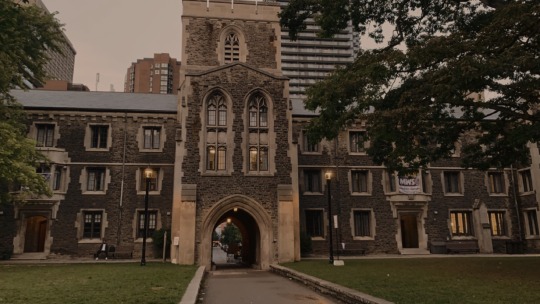
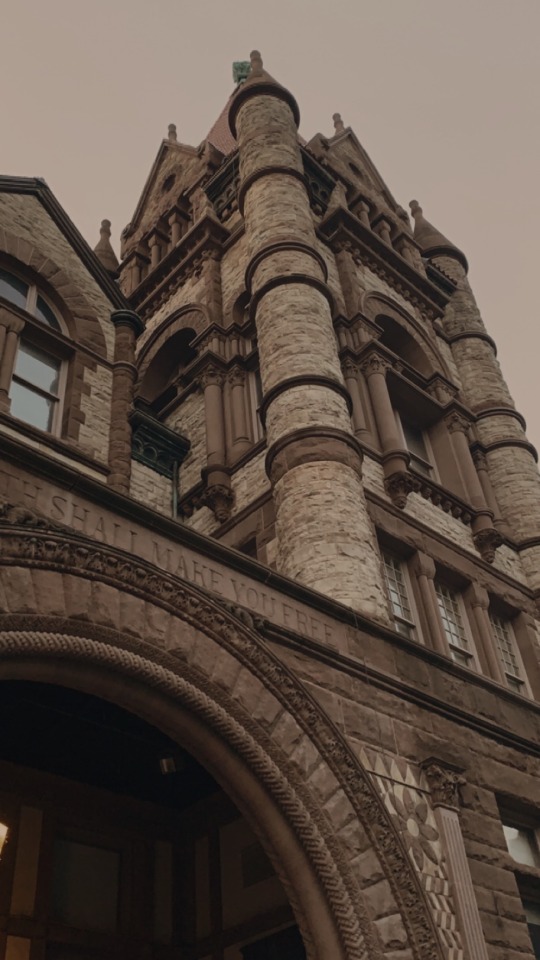


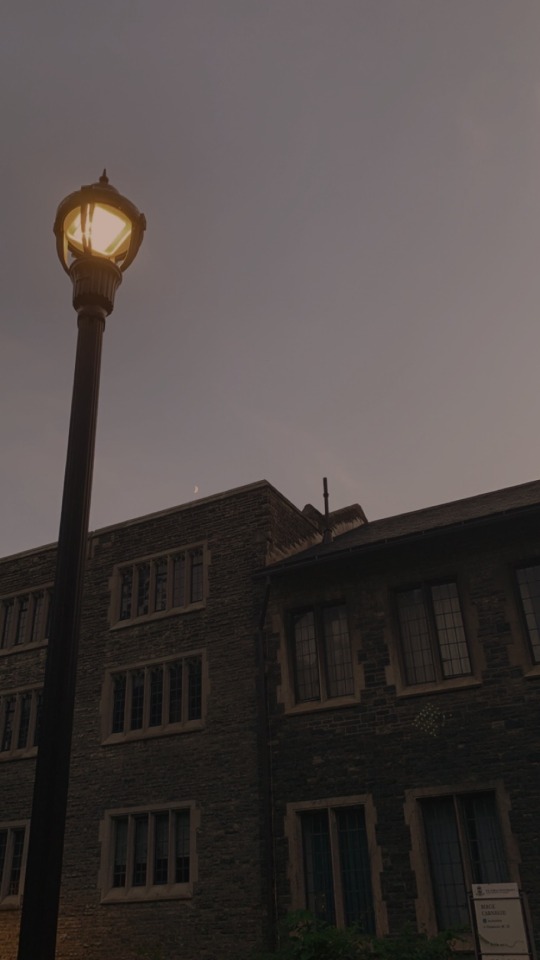

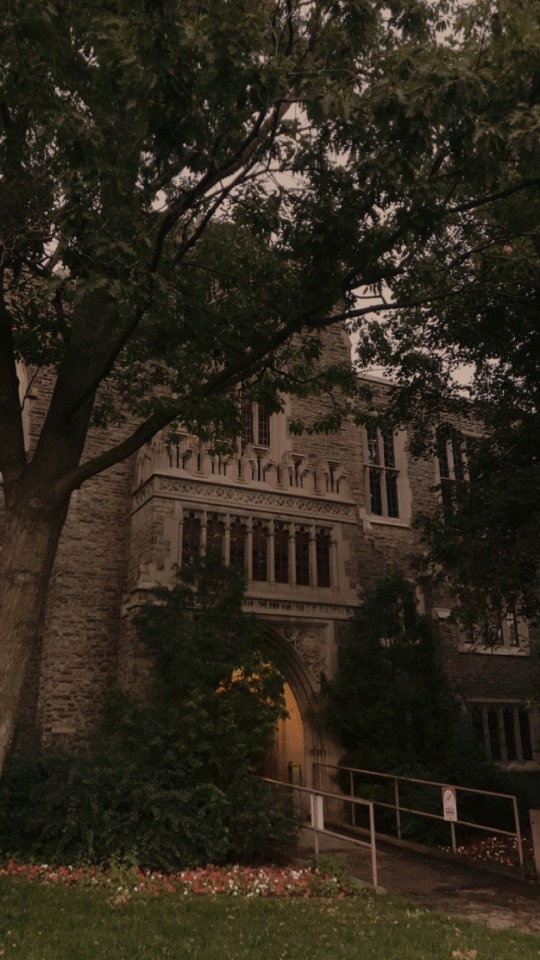


Friday
I’m sick today, and staying home. So enjoy these photos of Victoria and Emmanuel College from earlier this week.
#aelstudies#university#dark academia#university studyblr#dark acadamia aesthetic#academia aesthetic#canada#university aesthetic#university of toronto#Emmanuel College#victoria university
74 notes
·
View notes
Text
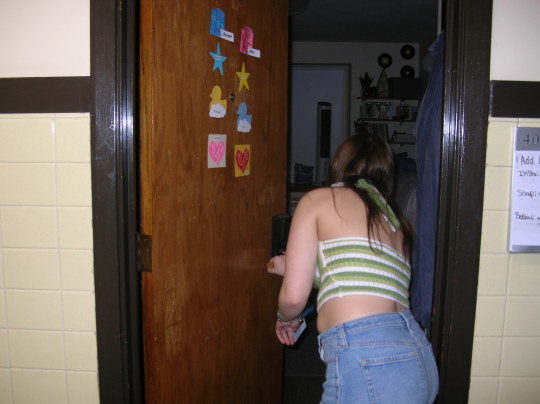
#TDRGTHC#nikon e4800#digicam#digital camera#digital photography#my photos#nikonphotography#photography#night#college#college living#boston#massachusetts#emmanuel college
2 notes
·
View notes
Text
Explore Emmanuel College from Anywhere: Virtual Tour Available Now!
Emmanuel College is a private, coeducational liberal arts college located in Boston, Massachusetts. With an enrollment of approximately 2,000 students, Emmanuel College has a student-to-faculty ratio of 13:1, ensuring personalized attention and support for students. The college's mission emphasizes social justice, ethical leadership, and service to others
0 notes
Note
Hiya! I am looking to apply for Cambridge next year and I am wondering if you could help me on what college to apply for? I want to study Philosophy so don’t want anything too far from the department. I would prefer somewhere in the city center, old architecture, good accommodation, good food and friendly/sociable people. I’ve been looking at Clare, Downing, Emmanuel and Pembroke so far but I’m not certain on which one to choose from. Thank you!
All four of those are quite central colleges. Clare would be *most* central but really it is a minor difference you’ll find.
I would say between those, Clare and Downing are social, sporty colleges and Emma and Pembroke are considered more academic. Emma has a pool and Pembroke is one of the prettiest colleges IMO.
Emma food is known to be not great, Downing and Pembroke have great food
Downing is known to have the best college accommodation. However, it has neoclassical architecture as was built in 1800 (think Jane Austen as opposed to Hogwarts)
Good luck!
5 notes
·
View notes
Text
Oyo Assembly pass bill to upgrade college of education to university
Oyo Assembly pass bill to upgrade college of education to university
Oyo State House of Assembly on Wednesday passed the Emmanuel Alayande University of Education, Oyo Bill 2022 into law.
The bill makes it possible for the changing of Emmanuel Alayande College of Education, Oyo, to Emmanuel Alayande University of Education, Oyo.
The lawmakers passed the bill after its clause-by-clause consideration.
Speaker of the house, Adebo Ogundoyin, who spoke during the…

View On WordPress
0 notes
Text
Rodriguez's 2 TD runs push No. 22 Kentucky past Miss. State
Rodriguez’s 2 TD runs push No. 22 Kentucky past Miss. State
LEXINGTON, Ky. — Challenged by Mark Stoops to do better, No. 22 Kentucky rebounded from a sluggish outing with a performance the coach knew it was capable of.
Chris Rodriguez Jr. rushed for 196 yards and two fourth-quarter scores, Will Levis returned from a one-game absence to throw a go-ahead touchdown pass and the Wildcats topped No. 16 Mississippi State 27-17 on Saturday night to halt a…
View On WordPress
#Austin Williams#Barion Brown#College Football#College sports#Dekel Crowdus#Emmanuel Forbes#Football#Kentucky Wildcats football#Mark Stoops#Matt Ruffolo#Mike Leach#Mississippi S#Southeastern Conference football#Sports#Will Levis#Will Rogers
0 notes
Text
Emmanuel college dorms
low" target="_blank">READ ONLINE</a></u><br>bit.do/fSmfG</strong> <p> </p><p> </p></center><p> </p><p> </p><p> </p><p> </p><p> </p><p> </p><p>emmanuel college housing costs
<br> emmanuel college residence life
<br> new residence hall emmanuel college
<br> emmanuel college what to bring
<br> emmanuel college boston dorm touremmanuel college dorm tour
<br> emmanuel college freshman dorms
<br> emmanuel college dorm rules
<br>
<br>
<br>
<br> </p><p> </p><p> </p><p>Emmanuel College Cambridge | Accommodation. Our postgraduates can also apply for our rooms & apartments in College or around Cambridge.
Two of the main residence halls on campus have been recently renovated, and Roberson Hall, a brand new, state of the art facility opened in August 2011.
Emmanuel College Cambridge | Accommodation. First years at Emmanuel reside in North Court, South Court and New South Court. College accommodation on the
Contemporary apartment-style living spaces located on Emmanuel College's campus. history of collaboration on academic and student housing initiatives. </p><br>https://wejajolob.tumblr.com/post/693618292500414464/qualys-api-vmpc-user-guide, https://wejajolob.tumblr.com/post/693618292500414464/qualys-api-vmpc-user-guide, https://wejajolob.tumblr.com/post/693618292500414464/qualys-api-vmpc-user-guide, https://wejajolob.tumblr.com/post/693618292500414464/qualys-api-vmpc-user-guide, https://wejajolob.tumblr.com/post/693618292500414464/qualys-api-vmpc-user-guide.
#http://vk.cc/c7jKeU#nofollow#_blank#<p> </p><p> </p><center>EMMANUEL COLLEGE DORMS >> <strong><u><a href= rel= target=>DOWNLOA
0 notes
Text
Struggling as a single mother in 1967 to raise a son on scant funds while teaching 10 college courses a year, Helen Vendler realized that “the only way I could make my life easier was to give up writing” — something she couldn’t face.
" ‘They can’t make me,’ I said to myself in panic and fear and rage. ‘They can’t make me do that,’ " she recalled in an essay decades later. “I suppose ‘They’ were the Fates, or the Stars, but I knew that to stop writing would be a form of self-murder.”
As she had done before and would do again, Professor Vendler found a path through that crisis. And soon she published the second of some 30 books of poetry criticism she wrote or edited while becoming one of the most influential and esteemed figures in her field.
[...] “I believe poetry is for everybody,” Professor Vendler, who was still writing and publishing essays, said in an interview for this obituary as her health was failing.
“Helen understood that all poets needed what she did so they could take the next step,” said Jorie Graham, a Pulitzer Prize-winning poet who had barely heard of Professor Vendler when she reviewed Graham’s earliest work for The New York Times in the early 1980s.
“I encountered the most lucid account of what I was doing that I could ever hope for,” Graham, who became a friend and Harvard colleague, said of those first reviews. “She certainly taught me right away that there was more to a poem than I could fathom on my own.”
Seamus Heaney, the late Nobel Prize-winning poet whose work Professor Vendler championed early on, once said that “she is like a receiving station picking up on each poem, unscrambling things out of word-waves, making sense of it and making sure of it. She can second-guess the sixth sense of the poem.”
“I do understand, I think, what it feels like to be a poet, even though I’m not one,” Professor Vendler told the Harvard Gazette afterward. “I was born with a mind that likes condensed and unusual language, which is what you get from poetry.”
[...] At Emmanuel College, from which she graduated summa cum laude, Professor Vendler decided against studying literature — taught there, she wrote, “as a branch of faith and morals.”
Majoring in chemistry, she found science crucial to her intellectual development.
“I think it’s the base of everything I do,” she said in a 2004 National Endowment for the Humanities interview. “You have to be exact in all your writing in science: your flow chart has to go from beginning to end with all the steps accounted for, and all the equations have to balance out. Evidence has to be presented for each step of your reason.”
[...] At Harvard, Professor Vendler also taught a celebrated core course, “Poems, Poets, Poetry,” which was aimed at non-humanities majors.
“I thought — and still think — that all people would like poetry if they were only brought up with it and shown how easily it is entered into and what enormous solace it has to offer,” she wrote in a 1994 essay.
Poems offered vital comfort and support to her as well.
“Helen needed poetry to live by,” Graham said. “She fashioned and honed her moral sense not through the church, but through the church of poetry — the whole history of poetry. I can’t imagine a poem that she didn’t know.”
Helen Vendler, a towering presence in poetry criticism, dies at 90
103 notes
·
View notes
Text
Hira's parents and his self-defeating tendencies
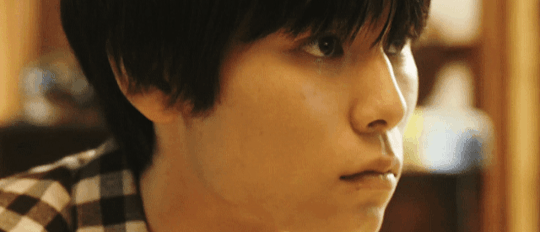
I was talking to @sorry-bonebag and @wen-kexing-apologist about what role Hira's parents might have played in creating the weirdness he displays throughout both seasons of Utsukushii Kare & Eternal. I started writing a response and it got too long and, well, now it's a post.
Before I talk about Hira's parents and the tendencies in him that they helped to create, I want to note that family of origin is just one of the influences that form us as people. Parents and caregivers have a huge influence, as do other family members. But so do peers. The bullying about his disability that Hira experiences nearly constantly is one of the biggest influences on his personality.
Hira's parents appear extremely briefly at the very beginning of the series. His mom fusses a bit about him being on his own and his dad is very "he has to take care of himself sometime" about it. We know they took him to specialists for his dysphemia, bought him his camera, etc.
Their departure is a show thing, by the way, and isn't present in the novel. In the novel they continue to live with him through high school and, if I remember correctly, part of college. But they don't play a big role in his life. The main things that happen involving them are either instances of Hira hiding things from them (or attempting to) or instances of his mother briefly, sporadically, having a big burst of worry about him. It would make sense if the show version of his parents were the same way aside from the leaving-him-to-live-alone part of things, though that’s not shown.
The rest of my thoughts are largely headcanon since I’m working backwards from his personality to guess about his formative years, but they match up with the little bit that’s shown in the series and how his parents are in the novel. I see Hira as having a self-defeating personality in a lot of ways. The typical etiology of this kind of personality (the set of conditions that lead up to it) is supposed to be a rather deprived childhood that is punctuated by occasional bursts of parental attention when the child is seen as in crisis somehow (or when they attract attention in other self-defeating ways, like intentionally getting in trouble).
This reminds me of something Nancy McWilliams writes about in Psychoanalytic Diagnosis, attributing the idea to someone named Emmanuel Hammer: “a masochistic person is a depressive who still has hope.” [I should note here that “masochistic personality” is an older term for self-defeating personality that is not meaningfully correlated with masochism in a sexual sense. I think that, despite how he might appear at first glance, Hira actually isn’t sexually masochistic or submissive. I have a whole mostly-written post about this that I hope will see the light of day eventually.] In other words, whereas the background that creates a depressive personality involves deprivation that's intense enough that the person gives up on the possibility of receiving the love they need, the self-defeating personality has had enough success with occasionally getting their needs met that they keep trying.
If that’s what happened with Hira, it would be consistent with what we see of his parents in the series. We know they pulled out the stops at certain points when it comes to his dysphemia. Anyone who’s a parent can tell you how hard it is to get a good specialist to see your kid, even when they have some kind of glaring issue and you have decent healthcare access overall. The fact that they managed to get him in with a specialist is notable all on it own. (I actually have some stressful phone calls I need to make today in a similar vein, seeking specialist help for one of my kids.) They also spent a lot of money on a DSLR for a young kid. And yet they’re OK with letting him live alone and after that point remain very hands-off. It also seems like despite the attention they paid to his dysphemia during that one period, by the time of the series they’ve totally stopped trying to support him about it.
Basically, I think his parents are largely neglectful (emotionally rather than materially) but that every so often, they freak out and pay a bunch of attention to him because they perceive him to be in need of rescuing. When he was young, he probably appreciated the attention when it happened, but at the time of the series he gets those needs met in other ways and/or displaces that need for attention onto Kiyoi. The idea of seeking attention in this way maps especially well onto his relationship with Kiyoi, because he seeks Kiyoi’s attention and approval through exactly the sort of strategies typically used by people with self-defeating personalities. Here’s McWilliams again:
Reik (1941) explored several dimensions of masochistic acting out, including (1) provocation [she refers to a previous anecdote about a woman who feared angry outbursts by her partner because of experiences with her father; she would act out in ways that antagonized him in order to “get it over with”], (2) appeasement (“I’m already suffering, so please withhold any further punishment”), (3) exhibitionism (“Pay attention: I’m in pain”), and (4) deflection of guilt (“See what you made me do!”).
I can think of plenty of instances of provocation (the first type). Hira often does things he knows will make Kiyoi angry, and sometimes visibly relishes the negative attention.
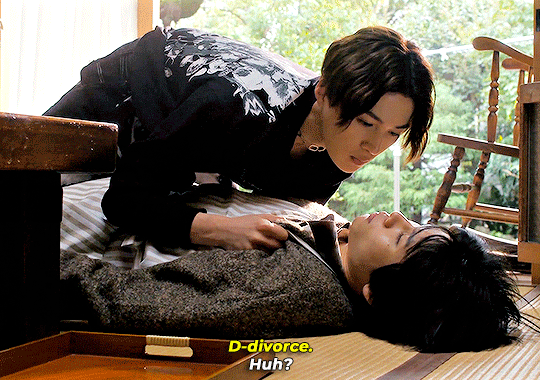
One good example is the scene in Eternal where he creates a totally avoidable misunderstanding by vaguely talking about how “a divorce is going to happen” because of an affair, which Kiyoi takes to be referring to their relationship and specifically, to Hira cheating. When Kiyoi rears back to punch him, Hira protests for a moment but then says being killed by Kiyoi is actually a longstanding wish of his. It turns out it’s Naho-chan who is getting divorced because her husband cheated. Hira could easily have spoken more clearly when he brought this up by using subjects in his sentences. When he first brings up divorce, Kiyoi says, “Who are you to decide on your own without me agreeing? What dissatisfaction do you have with me?”, which makes it clear he thinks Hira is referring to something involving him. Yet Hira continues to speak without subjects when he elaborates and says the reason for the divorce is an affair. He only clears up the misunderstanding after Kiyoi has lost all patience and is (legitimately!) freaking out. There's no way this isn't, on some level, intentional.
One version of appeasement (the second type of self-defeating acting out) that McWilliams talks about is criticizing oneself before others can do so. It’s no exaggeration to say that Hira talking himself down to Kiyoi is a defining characteristic of their relationship. There are lots of examples of this but a particularly classic case is his constant refrain about being a “pebble.” His invitation for Kiyoi to “Please hit me as much as you want” after their fight in season 2 is another example of appeasement.
It’s hard to pin down specific examples of Hira employing the third type of acting out, exhibitionism. It makes sense that it wouldn’t be, though. This is a very covert type of exhibitionism that doesn’t announce itself. I think you can observe it in subtle ways, though. For example, when Shirota dumps tomato juice on Kiyoi, a bunch of it gets on Hira as well. Afterwards, Kiyoi cleans the juice off of himself as best he can, seemingly as quickly as possible, and changes his clothes. But when he talks to Hira afterward, dried drops of juice are clearly visible on Hira’s face. Acidic juice on one’s face would probably feel uncomfortable, but he intentionally doesn’t wash it off. It’s like he’s wearing these stains as a badge of honor and proof of his mistreatment.
I think deflection of guilt, the fourth type, is less characteristic of Hira than the others. He tends to absorb guilt rather than deflecting it, blaming himself in a way that often takes the form of the self-critical form of appeasement.
I think it's worth noting that he also employs appeasement as a strategy in the hostile environment of high school. His biggest rule in school is to avoid attention as much as possible, so exhibitionism and provocation aren't acceptable options. (He does disobey Shirota in a way that could be considered provocation when the rift between Kiyoi and Shirota first starts to form, but I think that's more a case of overt rebellion.) We don't see him employ deflection of guilt, though his teacher does seem a bit more forgiving of his attack on Shirota given what he knows about Hira's experiences with bullying. But appeasement? When he can't avoid attention entirely, that is his go-to strategy. It doesn't draw much, if any, additional attention this way. He can demonstrate to people who pose a danger to him that he's not a threat and is ready to comply with their orders if it will allow him to avoid mistreatment. It's only when he finds a kind of vicarious strength in Kiyoi (see my post here for more on that aspect of Hira) that he starts to deal with the bullying in other ways.
So, yeah. Hira's parents initially formed these patterns in Hira, peers deepened them, and they came out in his relationship with Kiyoi. A big part of the shift that needs to happen in order for their relationship to last is for Hira to stop using self-defeating strategies to sneakily get his needs met by Kiyoi and start seeking what he needs openly and assertively.
Maybe now would be a good time to brush off those other in-progress Utsukare posts and try to finish them off while I have a bit of momentum, huh?
By the way, if you’re interested in my previous Utsukare posts, I have a master post here with links to everything.
#utsukushii kare#utsukushii kare meta#utsukare#utsukushii kare analysis#psychology of bl#psychoanalytic theory#self-defeating personality#hira kazunari#kiyoi sou#hira x kiyoi
59 notes
·
View notes
Text

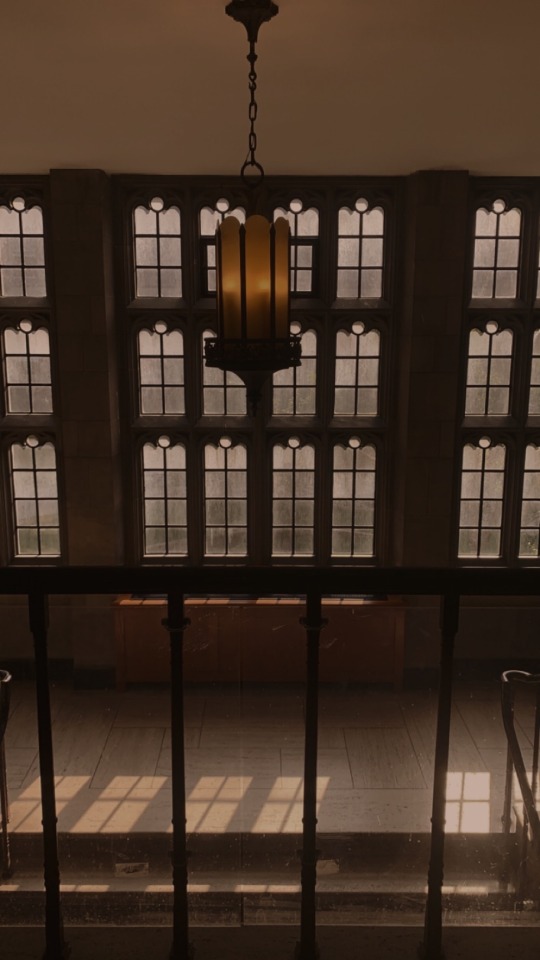


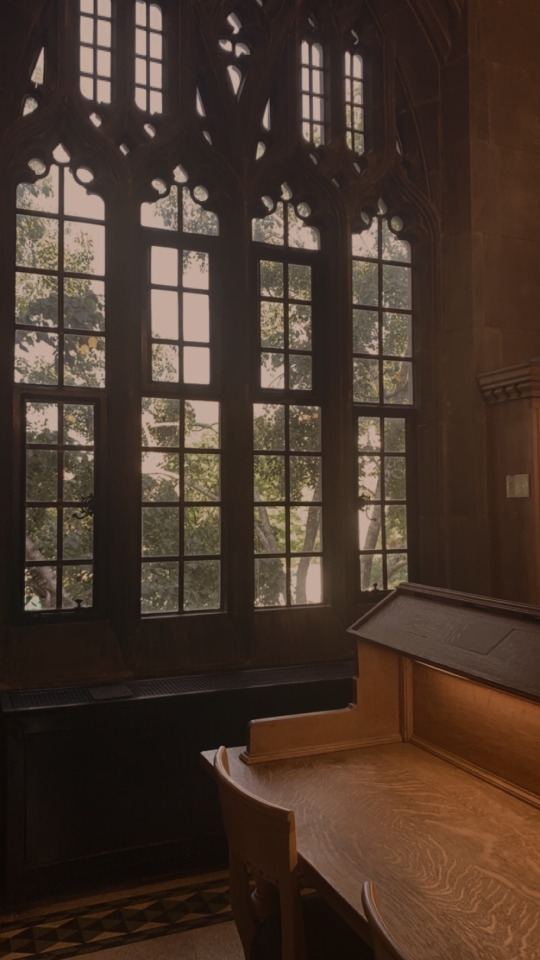
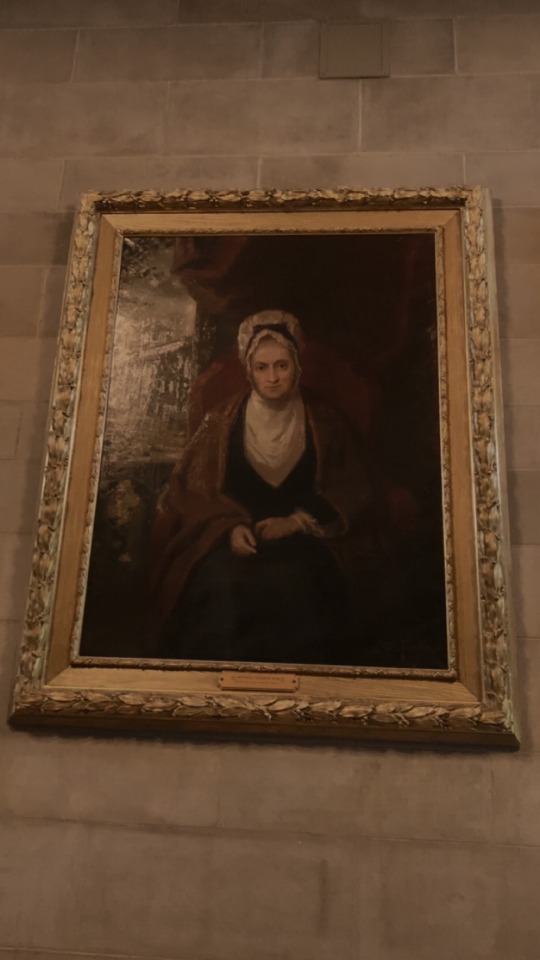
More Emmanuel College. Susanna Wesley looks like a determined woman in her portrait in the entrance hall. It’s my favourite painting there.
#i am in love#Emmanuel College#university of toronto#U of T#aelstudies#university#dark academia#dark acadamia aesthetic#academia aesthetic#university studyblr#Susanna Wesley#portrait#painting
74 notes
·
View notes
Text

#tdrgthc#nikon e4800#digicam#digital camera#digital photography#my photos#nikonphotography#photography#night#boston#massachusetts#college#college life#college living#emmanuel college
1 note
·
View note
Photo
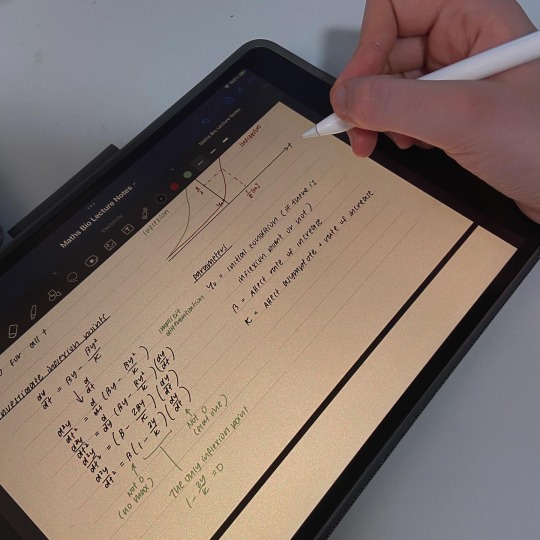
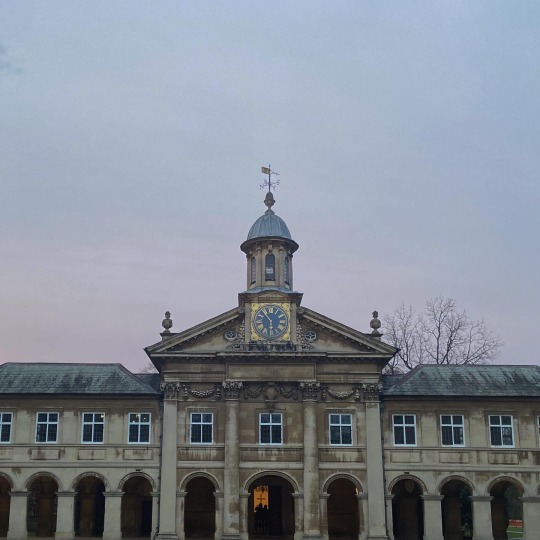

17.04.23 | mathematical biology notes
+ photos of emmanuel college and trinity college on a foggy day
#studyblr#studygram#studyspo#study inspo#cambridge#university of cam#cambridge university#university of cambridge#mid-afternoon-studies#study aesthetic#study notes#university#student blog
227 notes
·
View notes
Text
imagine you're emmanuel from hieron friends at the table. you were a baker for a long time and then you went on a boat and when you went back home your home was invaded and colonized so you fled to a different city but didn't even really set down roots there before the city was eaten by the roiling nothingness at the base of the world so you fled again to this community kind of homesteading out of a defunct college and you've been living there for 8 years. and it SUCKS. you've been legitimately going hungry OFTEN for like eight years. and this guy shows up. this guy who showed up in your life right before both extremely major changes shows up. and both of the last times you saw him he was like, really interested in you! but also, crucially, both times he vanished and you thought you weren't going to see him again. the last time was really long and you were like super sure he was dead. but anyway this guy shows up and acts like nothing's changed and you really want to go along with it. your last boyfriend like froze to death or died of dysentery or something. but you bring up settling down together because that's where it seems like things are going and he agrees immediately! and then goes "i mean, as long as i can go away and disappear again" so you're fucking pissed at him. and like, the next day, this motherfucker comes back to your house with one of those 2005 calculator communicator thingys saying that he's leaving again but you can stay in contact with this. and when you call him out on his bullshit he points at the moon and goes "i'll be there so you can look up and it'll be like we're together <3" and i'm sorry the moon? THE MOON FROM THE FUCKING SKY???????
198 notes
·
View notes
Text
Katherine Stewart at TNR (08.10.2023):
Earlier this year, nearly 1,000 supporters of “National Conservatism” gathered at the semicircular auditorium of the Emmanuel Centre, an elegant London meeting hall a couple of blocks south of Westminster Abbey, to hear from a range of scholars, commentators, politicians, and public servants. NatCon conferences, as they are often called, have been held in Italy, Belgium, and Florida and are broadly associated with what is increasingly called the “New Right.” In London, speakers denounced “woke politics,” blamed immigration for the rising cost of housing, and said modern ills could be solved with more religion and more (nonimmigrant) babies. The break room was lined with booths from organizations such as the Viktor Orbán–affiliated Danube Institute, the U.K.-based conservative think tank the Bow Group, the Heritage Foundation, and the legal powerhouse Alliance Defending Freedom, which is headquartered in Arizona but has expanded to include offices in nearly a half-dozen European cities.
When I attended NatCon London in May, I heard a number of American accents in the crowd, and I was not surprised to see Michael Anton, a former national security official in the Trump administration and a senior fellow at the Claremont Institute, a right-wing think tank, on the lineup. These days, Anton and other key representatives of the Claremont Institute seem to be everywhere: onstage at the Conservative Political Action Conference (CPAC); at the epicenter of Ron DeSantis’s “war on woke”; and on speed-dial with GOP allies including Josh Hawley, J.D. Vance, and Donald Trump.
Most of us are familiar with the theocrats of the religious right and the anti-government extremists, groups that overlap a bit but remain distinct. The Claremont Institute folks aren’t quite either of those things, and yet they’re both and more. In embodying a kind of nihilistic yearning to destroy modernity, they have become an indispensable part of right-wing America’s evolution toward authoritarianism.
Extremism of the right-wing variety has always figured on the sidelines of American culture, and it has enjoyed a renaissance with the rise of social media. But Claremont represents something new in modern American politics: a group of people, not internet conspiracy freaks but credentialed and influential leaders, who are openly contemptuous of democracy. And they stand a reasonable chance of being seated at the highest levels of government—at the right hand of a President Trump or a President DeSantis, for example.
[...]
Founded in 1979 in the city of Claremont, California (but not associated in an official way with any of the five colleges there), the Claremont Institute provided enthusiastic support for Donald Trump in 2016. Individuals associated with Claremont now fund and help run the National Conservativism gatherings; Claremont Institute chairman and funder Thomas D. Klingenstein also funds the Edmund Burke Foundation, which has held those National Conservatism conferences across the globe. Claremont is deeply involved in DeSantis’s effort to remake Florida’s state universities in the model of Hillsdale College—a private, right-wing, conservative Christian academy in Michigan whose president, Larry Arnn, happens to be one of the institute’s founders and former presidents. Claremont honored DeSantis at an annual gala with its 2021 “Statesmanship Award,” and the governor returned the favor by organizing a discussion with a “brain trust” that included figures associated with the Claremont Institute. If either Trump or DeSantis becomes president in 2024, Claremont and its associates are likely to be integral to the “brain trust” of the new administration. Indeed, some of them are certain to become appointees in the administrative state that they wish (or so they say) to destroy.
The Claremont Institute in the Trump era has become a clearinghouse for far-right and fascistic ideas.
#Claremont Institute#Conservativism#Right Wing Extremism#Alliance Defending Freedom#Danube Institute#The Heritage Foundation#Michael Anton#CPAC#CPAC Hungary#Bow Group
10 notes
·
View notes
Text
French politicians from across the political spectrum Wednesday denounced what they called an "Islamist" attack on education after a school principal resigned following death threats over a Muslim veil.
The headmaster at a high school and college in eastern Paris quit after receiving death threats online following an altercation with a student, officials told AFP on Tuesday.
In late February, he had asked three students to remove their headscarves on school premises, but one of them refused and an altercation ensued, according to prosecutors. He later received death threats online.
According to a school letter sent to teachers, pupils and parents on Tuesday, the principal stood down for "security reasons", while education officials said he had taken "early retirement".
"It's a disgrace," Bruno Retailleau, the head of the right-wing Republicans faction in the Senate upper house, said on X (former Twitter) on Wednesday.
Voilà à quoi aboutit le « pas de vague », voilà où nous mènent les petites lâchetés et les grands renoncements. La démission de ce proviseur est le résultat de la démission de l’éducation nationale et de l’Etat tout entier.
Une honte. https://t.co/OAC8fpHDxg— Bruno Retailleau (@BrunoRetailleau) March 27, 2024
"We can't accept it," Boris Vallaud, the head of the Socialist deputies in the National Assembly lower house, told television broadcaster France 2, calling the incident "a collective failure".
Marion Marechal, the granddaughter of far-right patriarch Jean-Marie Le Pen and a popular far-right politician herself, spoke on Sud Radio of a "defeat of the state" in the face of "the Islamist gangrene".
Maud Bregeon, a lawmaker with President Emmanuel Macron's Renaissance party, also took aim at "an Islamist movement".
"Authority lies with school heads and teachers, and we have a duty to support this educational community," Bregeon said.
A 26-year-old man has been arrested for making death threats against the principal on the internet. He is due to stand trial in April.
France is home to Europe's largest Muslim community.
In 2004, authorities banned school children from wearing "signs or outfits by which students ostensibly show a religious affiliation" such as headscarves, turbans or kippas on the basis of the country's secular laws which are meant to guarantee neutrality in state institutions.
14 notes
·
View notes
Text
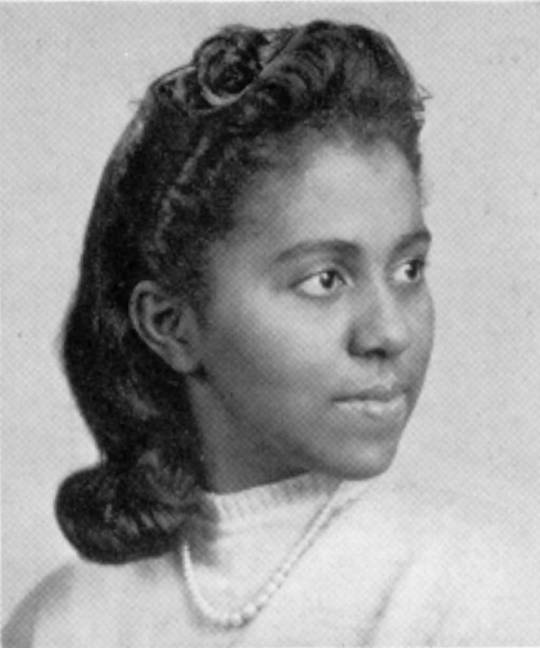
Biochemist Marie Maynard Daly was born (April 16, 1921) she was the first Black woman in the United States to earn a Ph.D. in chemistry (awarded by Columbia University in 1947). Daly made important contributions in four areas of research: the chemistry of histones, protein synthesis, the relationships between cholesterol and hypertension, and creatine's uptake by muscle cells.
Daly attended Hunter College High School, a laboratory high school for girls run by Hunter College faculty, where she was also encouraged to pursue chemistry. She then enrolled in Queens College, a small, fairly new school in Flushing, New York. She lived at home to save money and graduated magna cum laude from Queens College with her bachelor's degree in chemistry in 1942. Upon graduation, she was named a Queens College Scholar, an honor that is awarded to the top 2.5% of the graduating class.
Daly's interest in science was also influenced by her father, who had attended Cornell University with the intention of becoming a chemist, but had been unable to complete his education due to a lack of funds. Daly would thus complete her father's ambition by majoring in chemistry. Years later, she started a Queens College scholarship fund in his honor to assist minority students majoring in chemistry or physics.
Dr Marie M Daly died on October 28, 2003. On February 26, 2016, the Founding Principal of the new elementary school P.S.360Q, Mr. R. Emmanuel-Cooke, announced that the school would be named "The Dr. Marie M. Daly Academy of Excellence" in honor of the Queens resident.
58 notes
·
View notes